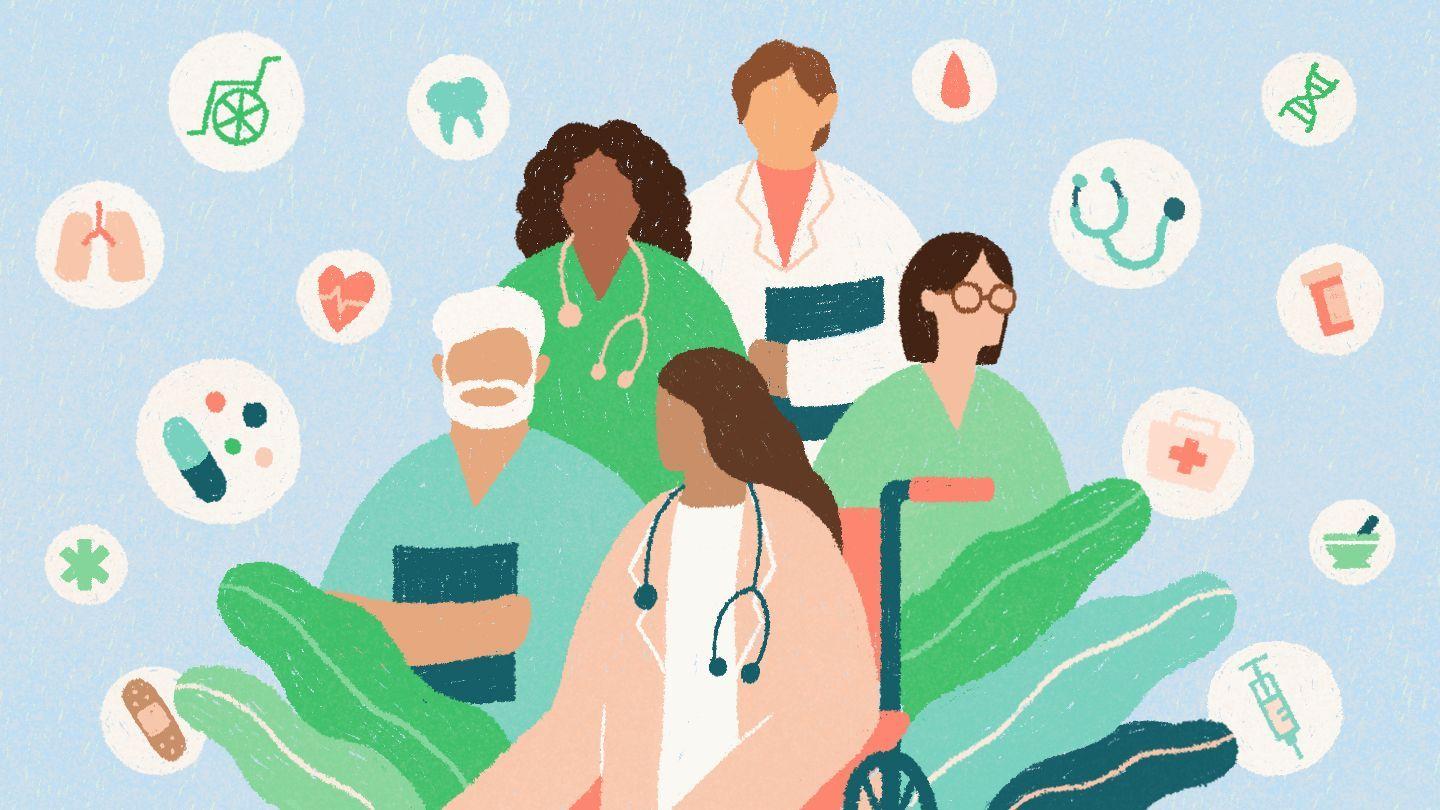Scroll down for versions of this content in Spanish and Portuguese.
Health-related information, including false or misleading content, often spreads quickly through social media and messaging applications. It can include unproven treatments or fake cures, false or misleading information about vaccines, conspiracy theories, and false claims about the origins and severity of diseases. Such disinformation and misinformation can lead to confusion, mistrust in public health efforts, and potential harm to individuals and communities, as was clearly seen during the COVID-19 pandemic.
Why Do These Narratives Matter?
Health narratives can have a tangible impact on a person's day-to-day life. They can influence perceptions, decisions, and behaviors about the types of treatments or health interventions individuals and groups might choose. However, false or misleading information can have detrimental effects on a person’s decision-making process. A report from UNICEF in 2023 found that in the last ten years, Latin America and the Caribbean recorded the world’s biggest drop in childhood vaccination. Although this decline is attributed to various factors, UNICEF also noted that part of it could be due to a decrease in confidence in vaccines’ effectiveness.
Information disorder about health can also perpetuate harmful stereotypes, exacerbate health inequities, and negatively affect health outcomes. Health disinformation targeting marginalized communities, including Latino communities, can further strain relationships between these communities and health care providers. Disinformation and misinformation can also breed mistrust and fear, making individuals less likely to seek needed medical attention or to follow public health guidelines. Language barriers may compound these issues. Important health information might not be available or accurately represented in Spanish, Portuguese, or indigenous languages. This absence can make it easier for disinformation to fill the information gap.
Where and How are These Narratives Spreading?
While different platforms have different policies and methods for dealing with health disinformation, the effectiveness of these measures can vary, especially in Spanish and other non-English languages. For example, in December 2020, Meta announced they would “remove false claims that COVID-19 vaccines contain microchips” on Facebook and Instagram. This claim had also been rated false by Meta’s fact-checking partners in the United States, including Reuters and USA Today. However, while Facebook has since often flagged or labeled this content in English, the same content in Spanish and Portuguese would either never get flagged or take days to even a year to get labeled back then - that asymmetry persists.
The COVID-19 pandemic resulted in health disinformation and misinformation becoming more prominent in Latino spaces online. Unfounded rumors, conspiracy theories, and misinformation about the virus and the vaccines have been widely circulated, leading to confusion, fear, and skepticism. The Spanish-language narratives largely reflect the narratives seen in English spaces online, such as conspiracy theories (e.g. plandemic, 5G, microchip, etc.), popular fake cures (e.g. hydroxychloroquine), and anti-vaccine narratives.
Alternative platforms such as Telegram have multiple channels from Latin America and the United States that have thousands of followers and continue to spread vaccine disinformation and misinformation. Many of these channels are exclusively focused on COVID-19 and vaccines, with names such as “muertes repentinas” (“sudden deaths”), “muertes por vacunas Covid19” (“deaths from COVID-19 vaccines”), and “Médicos por la verdad México” (“Doctors for the truth Mexico”).
Medicos por la Verdad, or Doctors for Truth, is an international network of individuals, some of whom are actual medical professionals, while others appear to merely claim to be. This organization has been responsible for disseminating various forms of misinformation concerning the COVID-19 pandemic. Their false claims include promoting fake cures, spreading misinformation about vaccines, advocating against the use of masks, and even outright denying the existence of the pandemic. Originating in Germany, the network has since established a significant presence in Spain and various countries throughout Latin America. Many of their false messages are propagated by individuals leading affiliate chapters in their respective countries, claiming to be doctors and medical experts. Some of these leaders and affiliate chapters have created Telegram channels, amassing followers ranging from a few thousand to tens of thousands. Many of these channels remain active today, continuing to spread misleading information that could potentially endanger public health. The influence of the network is heightened by the professional standing of the individuals involved. Their self-identification as medical experts lends a false sense of credibility to their claims, making the misinformation they spread even more insidious. This has led to growing concern among legitimate medical communities and authorities, and some have initiated investigations into the network's activities.
Looking to the Future
While COVID-19 as a global health emergency has ended, the pandemic led to a rise in vaccine disinformation and misinformation that still continues to spread, including in Latin America and in Spanish-language spaces in the United States. This highlights the need for concerted efforts to combat health disinformation and ensure the dissemination of accurate, culturally sensitive, and linguistically appropriate health information. To combat disinformation effectively, it's crucial to involve community leaders, utilize trusted communication channels, and prioritize transparency and accessibility in health communication.
